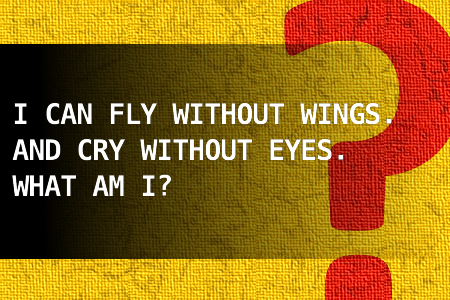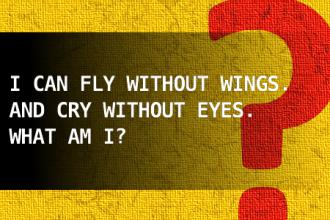I can fly without wings. And c...
Brain Teasers
[2225] I can fly without wings. And c... - I can fly without wings. And cry without eyes. What am I? - #brainteasers #riddles - Correct Answers: 89 - The first user who solved this task is Roxana zavari

2016-05-19
